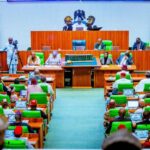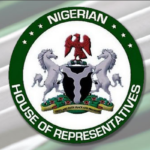By Mercy Aikoye
The Independent National Electoral Commission (INEC) is pushing for stricter laws to combat vote-buying and other electoral malpractices in Nigeria. Recently, INEC’s Director of Litigation and Prosecution, Tanimu Muhammed SAN, emphasized the growing concern over vote-buying, which has become a significant threat to Nigeria’s democratic process.
Muhammed suggested that individuals should not be allowed to carry more than ₦50,000 within polling areas. This proposal aims to prevent politicians from justifying carrying large amounts of cash on election day, which often fuels vote-buying and compromises the integrity of elections.
The commission urged lawmakers to prioritize amendments that would close loopholes exploited by political actors. Additionally, INEC reiterated its demand for the establishment of an Electoral Offenses Commission, arguing that the electoral body lacks the capacity to effectively prosecute offenders.
INEC officials believe that a dedicated institution with legal authority and resources is necessary to investigate and prosecute electoral crimes comprehensively. The creation of an Electoral Offenses Commission would ensure that vote-buying, ballot snatching, and other crimes are met with swift legal action.
Ondo Resident Electoral Commissioner, Oluwatoyin Babalola, emphasized that reducing cash transactions at polling units would make it harder for politicians to influence voters with financial inducements. Setting a cash limit would provide security agencies with clearer guidelines on what constitutes an electoral offense, making enforcement easier.
Security agencies at the meeting reaffirmed their commitment to ensuring free and fair elections. However, they acknowledged challenges, particularly in logistics and coordination. The Commissioner of Police in charge of election planning and evaluation, Abayomi Shogunle, highlighted the need for addressing inadequate resources that often hamper law enforcement efforts during elections.
In response to INEC’s concerns, the Chairman of the House Committee on Electoral Matters, Hon. Adebayo Balogun, assured that all issues discussed would be addressed in future electoral reforms. He announced plans for a 2025 Electoral Act to replace the current 2022 version, which had exposed gaps during the 2023 elections.
Balogun emphasized the need for increased awareness among political parties, INEC officials, and civil society organizations on the dangers of vote-buying and other electoral malpractices. The Senate Chairman on Electoral Matters, Senator Sharafadeen Alli, noted that the proposed reforms must reflect lessons learned from past elections to ensure Nigeria’s democracy continues to evolve positively.



